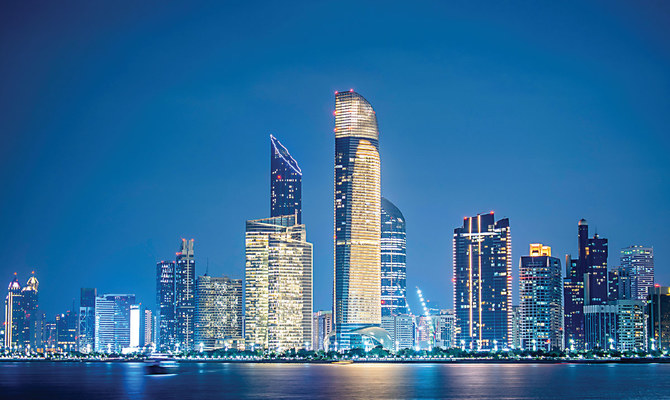RIYADH: The global hospitality sector is set to witness a significant influx of investment as key industry players from over 50 countries convene at the Future Hospitality Summit in Abu Dhabi from Sept. 25-27.
Centered around the theme “Focus on Investment,” the event will serve as a catalyst for change, facilitating interactions among over 1,000 hospitality leaders through debates, dialogues, initiatives, and announcements.
Hosted at the Hilton Abu Dhabi Yas Island, the agenda for the three-day event includes contributions from more than 150 speakers in the form of panel discussions, one-on-one interviews, roundtables, innovation pitches, and student-led sessions.
In an interview with Arab News, Jonathan Worsley, chairman of the organizing company The Bench, said that participants can expect a myriad of networking opportunities and receptions throughout the course of the summit.
“From our tried and tested FHS business card exchange and networking receptions to early morning runs, yoga classes, culinary tours, and golf, there are countless experiences available to connect and network for our delegates,” he said.
“As the region’s leading tourism and hospitality summit, we look forward to three action-packed days of discussion, debate, and dealmaking,” he added.

Worsley told Arab News that the event would explore a diverse array of topics such as the role of environmental, social, and corporate governance, the effects of the current geopolitical landscape on investment opportunities, and the incorporation of technology in the sector.
“Technology will once again be at the forefront of the FHS program with leaders discussing the future of the hospitality and travel tech stack. One of the sessions I am personally very excited about is the presentation by Cenk Sidar, CEO and co-founder of Enquire AI, who will share key insights on the power of artificial intelligence and how it is transforming business decision-making,” Worsley said.
He also highlighted a panel discussion to be led by Marco S. Rentsch, partner at PwC Middle East’s Global Consulting Hospitality and Tourism Center of Excellence. The session will explore the ongoing digital transformation within the hospitality sector and examine best practices and strategies across various industries.
“This panel discussion will cover topics such as how technology can improve operating processes, how data can be monetized and used to optimize the guest experience, and how technology can support meeting ESG goals in the sector,” Worsley said.
“In the lead up to FHS, I spoke with Tatiana Labaki, head of hotel and tourism advisory at TONOMUS NEOM, who is one of the panelists in this session, and she mentioned that as technology is seen as an enabler of an optimal, frictionless, and seamless guest experience we should always start our understanding from the guest journey,” he said.
“She also believes that technology will support the key hospitality verticals, including the guest experience, top-line revenue, and operational/cost efficiencies,” he added.
Worsley believes that fostering entrepreneurship is essential for driving technological adoption and enabling innovation in the hospitality sector. “FHS is proud to act as a springboard for promising startups in the industry,” he added.

With Yas Island, Miral has showcased that by bringing together world-class attrac-tions, including award-winning theme parks, and a vast portfolio of leisure and hospitality offerings.
Jonathan Brown, chief portfolio officer of Miral
“At The Bench, we’re passionate about helping entrepreneurs position their startups for success and to accelerate their growth, and again this year, we will be hosting the FHS Startup Den in which 11 finalists will be pitching to a senior panel of judges. These startups are tech platforms that are transforming the industry,” he stated.
The event will also highlight the importance of sustainability within the hospitality industry. Worsley noted that given that 2023 is the UAE’s Year of Sustainability and with COP28 scheduled to take place in Dubai, the FHS will bring an unprecedented focus on sustainability issues.
He added that the event will host the finals of the Sustainable Hospitality Challenge, a global competition for students.
“We also look forward to working with our partners Fresh on Table again this year to bring local produce to the food and beverage experience at FHS and to promote local businesses and sustainability in the hospitality sector,” he said.
“Fresh on Table is a digital marketplace that promotes locally sourced food by bringing buyers and local sellers together. Through our partnership with Fresh on Table last year, we were able to save 288 kilos of carbon emissions and 44,168 food miles by sourcing local produce for the conference menu,” he added.
FASTFACT
Centered around the theme ‘Focus on Investment,’ the event will serve as a catalyst for change, facilitating interactions among over 1,000 hospitality leaders through debates, dialogues, initiatives, and announcements.
He further elaborated that Hilton Abu Dhabi Yas Island will contribute to the event’s focus on sustainability by aiding FHS in becoming carbon-neutral through Hilton’s award-winning sustainability measurement program, LightStay.
“As part of this initiative, we will be measuring and analyzing the environmental impact of FHS 2023 using their proprietary LightStay Meeting Impact Calculator. Once the event is completed, the CO2 emissions will be offset by procuring carbon offset credits from Hilton’s partners — the South Pole Group,” he added.
In an interview with Arab News, Jonathan Brown, chief portfolio officer of the host sponsor Miral, stated that high-level business events such as the FHS play a key role in accelerating diversification and economic development.
“With Yas Island, Miral has showcased that by bringing together world-class attractions, including award-winning theme parks, and a vast portfolio of leisure and hospitality offerings, we can deliver a one-stop destination that provides unique and memorable experiences for our guests and business travelers from across the world,” Brown said.
“We are looking forward to welcoming industry leaders to explore the exceptional experiences this remarkable island has to offer. We encourage guests to take the opportunity to witness first-hand the remarkable offerings that make Yas Island a preferred destination for hospitality and leisure,” he added.
“To further enhance their experience, across the three days there will be a variety of networking activities hosted across the island, including a welcome reception at the Cafe del Mar Beach Club at Yas Bay Waterfront, a networking event at the luxurious Saadiyat Rotana Resort on Saadiyat Island and a closing party at Lock, Stock and Barrel on Yas Bay Waterfront as well,” Brown added.


























